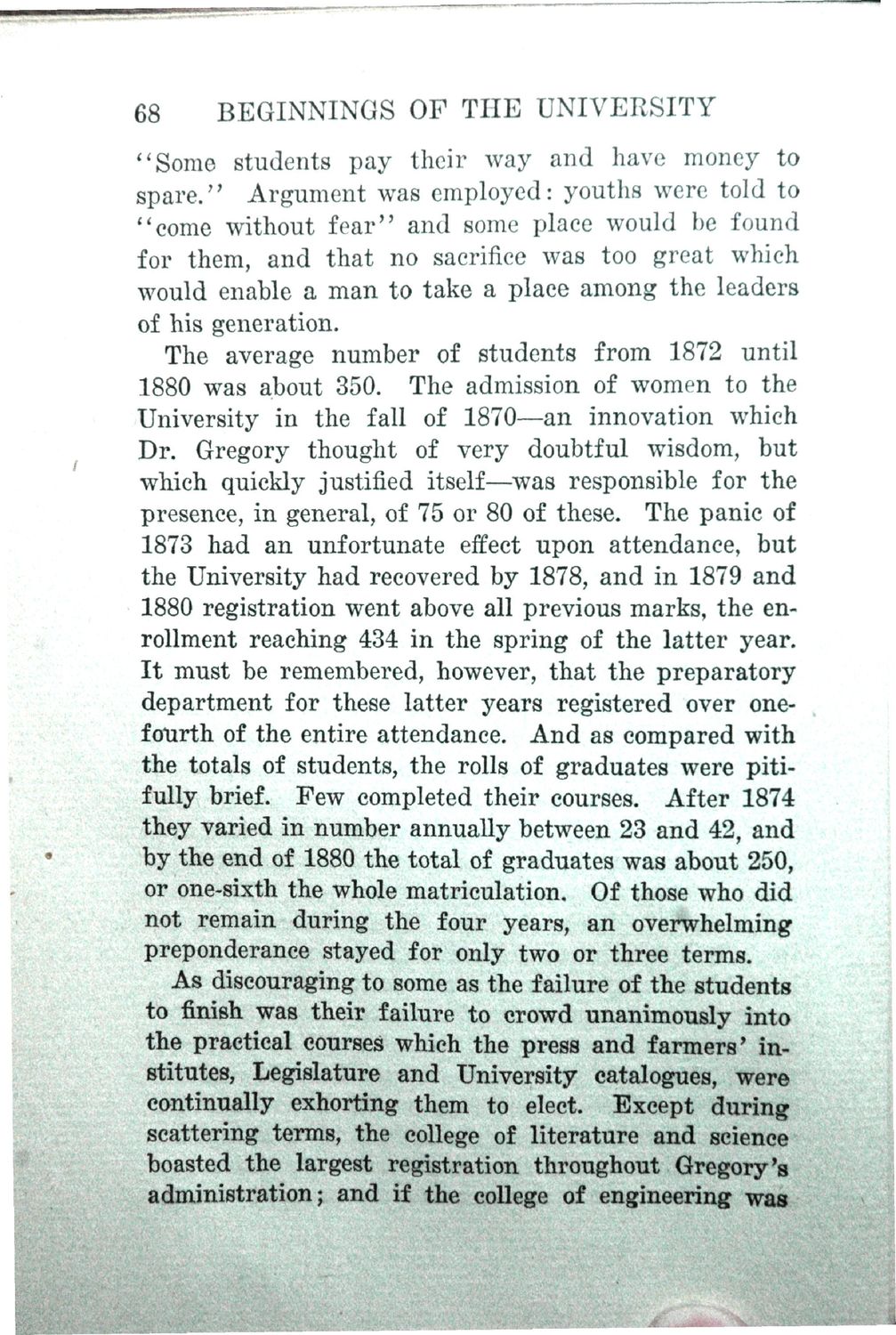| |
| |
Caption: Book - History of the University (Nevins)
This is a reduced-resolution page image for fast online browsing.

EXTRACTED TEXT FROM PAGE:
68 BEGINNINGS OF THE UNIVERSITY "Some students pay their way and have money to spare." Argument was employed: youths were told to "come without fear" and some place would be found for them, and that no sacrifice was too great which would enable a man to take a place among the leaders of his generation. The average number of students from 1872 until 1880 was about 350. The admission of women to the University in the fall of 1870—an innovation which Dr. Gregory thought of very doubtful wisdom, but which quickly justified itself—was responsible for the presence, in general, of 75 or 80 of these. The panic of 1873 had an unfortunate effect upon attendance, but the University had recovered by 1878, and in 1879 and 1880 registration went above all previous marks, the enrollment reaching 434 in the spring of the latter year. It must be remembered, however, that the preparatory department for these latter years registered over onefourth of the entire attendance. And as compared with the totals of students, the rolls of graduates were pitifully brief. Few completed their courses. After 1874 they varied in number annually between 23 and 42, and by the end of 1880 the total of graduates was about 250, or one-sixth the whole matriculation. Of those who did not remain during the four years, an overwhelming preponderance stayed for only two or three terms. As discouraging to some as the failure of the students to finish was their failure to crowd unanimously into the practical courses which the press and farmers' institutes, Legislature and University catalogues, were continually exhorting them to elect. Except during scattering terms, the college of literature and science boasted the largest registration throughout Gregory's administration; and if the college of engineering was At
| |